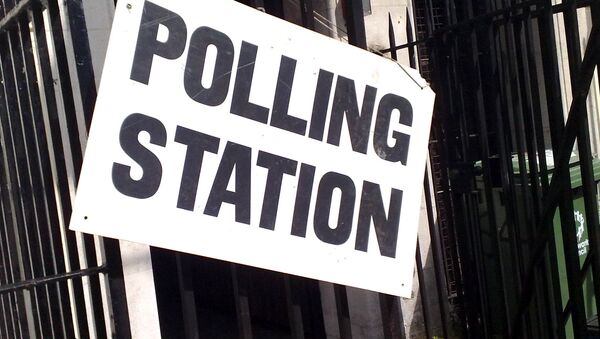The 1,015 applicants were all incarcerated at the relevant time following criminal convictions for a variety of offences. They were automatically prevented from voting in one or more elections in 2009, 2010 or 2011.
Relying on Article 3 of Protocol No. 1 – the right to free elections – all the applicants complained of a breach of their right to vote. The applications were lodged with the European Court of Human Rights on various dates between 19 August 2009 and 31 October 2011.
Unelected foreign judges should not be dictating UK law-we have an elected government who democratically make law http://t.co/bT7cE6hGuM
— David Jones (@DavidJo52951945) February 10, 2015
In a previous case, in which the prisoners’ right to vote had been upheld, the court had ordered the UK government to amend the law to ensure it made electoral law compatible with the Convention.
However, Prime Minister David Cameron’s Conservative Party has thrown down the gauntlet and threatened to take the UK out of the European Convention on Human Rights. Its current policy is to amend the law to remove some existing rights – most notable to prevent prisoners from voting.
Why does the government oppose prisoners voting? Many are selfish ego maniacs.Typical tory voters.#bbcnews #skynews pic.twitter.com/99CTOwTdGv
— TheManchesterSoviet* (@TheMCRsoviet) February 10, 2015
The Tory plans to include a new law “clarifying” the legal position over human rights in Britain – setting it on a collision course with the Strasbourg Court. British citizens would also lose the right to take the British government to the human rights court in Strasbourg, a right they have had since 1966.
Tories Accuse Strasbourg Court of Mission Creep
The Conservatives say that, over the past 20 years, there have been significant developments which have undermined public confidence in the human rights framework in the UK, and which make change necessary today.
The European Court of Human Rights (ECtHR) in Strasbourg has long been established as a means of enforcing the Convention’s terms. It was not until 1998, however, that the binding jurisdiction of the Court, and the right of individuals to take a case to Strasbourg, became necessary for countries signed up to the Convention.
Prisoners’ lawyer welcomes #ECHR finding that voting ban breaches prisoners’ #humanrights http://t.co/lnUeRIfDNX pic.twitter.com/sv3Qx1DxCX
— Leigh Day (@LeighDay_Law) February 10, 2015
These developments happened at the same time as the Labour Government in the UK brought forward the Human Rights Act. In a policy paper, the Conservatives argue that “both the recent practice of the Court and the domestic legislation passed by Labour has damaged the credibility of human rights at home.”
“The European Court of Human Rights has developed ‘mission creep’. Strasbourg adopts a principle of interpretation that regards the Convention as a ‘living instrument’."
"Even allowing for necessary changes over the decades, the ECHR has used its ‘living instrument doctrine’ to expand Convention rights into new areas, and certainly beyond what the framers of the Convention had in mind when they signed up to it,” it said.
The Conservatives say there is mounting concern at Strasbourg’s attempts to overrule decisions of our democratically elected Parliament and overturn the UK courts’ careful applications of Convention rights.
The rights of inmates in Scottish prisons were breached by a ban on voting, European judges have ruled. http://t.co/Ahw54x3jPL
— STV News (@STVNews) February 10, 2015
The current dispute between the Court and the United Kingdom over voting rights for prisoners is one clear example. The party says the issue of the franchise in elections was deliberately excluded from the text of the Convention. “The Strasbourg Court has, however, now decided that it falls within the Convention’s ambit,” it said.
The question now is what the Tories are prepared to do ahead of an election. Politically, Cameron is likely to stick to his guns and delay any response to the prisoner ruling, knowing full-well his party – and a good deal of the country – are behind him.


